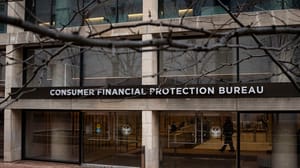Appraising Illegal AssetsAppraising Illegal Assets
What to do when an item has a fair market value, but there’s no easy way to sell it to pay the tax
September 13, 2012

How do you appraise illegal assets for the purpose of estate taxes and/or donations?
Some people have tangible items in their estate that can’t be legally sold, creating a problem: There’s a fair market value (FMV) that creates a tax liability, and yet, no easy way to sell the asset to pay the tax.
Collectible items with a real FMV, but no legal marketable venue, can still be converted into immediate cash, prior to death, through the tax savings generated when contributed to a willing nonprofit--willing in the sense that selling prohibitions tied to animal conservancy will occasionally change as the “herd” flourishes, opening the door for future sales. For example, African Elephant Ivory imported less than 100 year ago was placed on Appendix One of the Convention on International Trade in Endangered Species in January 19901 (which prevents international trade between member countries). Since then, some southern African countries have had their populations of elephants "downlisted" to Appendix Two. This allowed the sale of some stockpiles, thereby leaving donees with rare and potentially valuable items of exchange.
What’s the Value?
When donating an item that the Internal Revenue Service maintains has an FMV, but isn’t a legal commodity, you can’t determine the FMV of the particular item of property by a forced sale price. “Nor is the fair market value of an item of property to be determined by the sale price of the item in a market other than that in which such item is most sold to the public.”2 The FMV then exists, even if, as noted in Private Letter Ruling 9152005 (Aug. 30, 1991), the market is an illegal one. There’s a “fair market” present and the donor will still receive the relatable tax advantage. Thus, the donation of these items by the donor, prior to death, will reduce the estate through disposing of items that would have to be included on the estate tax return, which would have left the heirs without the ability to sell the collectibles to pay the tax.
Concerning the illicit market (in which ivory objects are regularly sold), in Publicker v. Commissioner, 206 F.2d 250 (3rd Cir. 1953), the court considered the FMV for gift tax purposes of unique jewels. The question arose as to whether, because of the uniqueness of the jewels, there was a viable retail market. In Publicker, the court stated that there were dealers willing to purchase the items, which established an available market, making note of the fact that uniqueness doesn’t condemn a property to no market. Therefore, the court concluded that, even though property may be unique, a “market” nevertheless exists in which to measure the value of the property. Also, in Jarre v. Comm’r, 64 T.C. 183 (1975), the court stated that “the fact that there may be a limited market does not prevent the property from having substantial value.”
In Estate of Sonnabend, now pending in the U.S. Tax Court, Docket No. 000649-12, the estate appraisers valued an iconic Rauschenberg, with an “attached” rare stuffed bald eagle (covered by the Eagle Protection Act), at zero. The IRS and the Art Advisory Council took a very different view of the painting and valued the piece at $65 million and demanded payment of a $29.2 million estate tax and an $11.7 million penalty and fine. Even though there’s no legal market for this painting, there “may be” an extralegal avenue, and the true intrinsic value of the art “must” be considered due to its stunning and stellar quality. Had the painting been donated prior to the owner's death (they were aware of the problems) the proposed FMV would have meant a deduction (with its inherent advantages) and the estate wouldn’t have been burdened with the problem.
True, there aren’t many Rauschenbergs with illegal “attachments,” but there are many collectors of ivory, Indian artifacts, etc., that could be facing similar tests.
Sell Before Death
While in the process of estate planning, review all tangible assets with an eye for any that might be challenging to sell upon death. Doing so can be both productive and profitable. By donating these items before death, the value can be captured as a deduction, as opposed to a liability, with no means to recoup the estate taxes.
Endnotes
1. www.cites.org/gallery/species/mammal/asianelephant.html; To Save An Elephant by Allan Thornton and Dave Currey, Doubleday 1991 ISBN 0-385-40111-6; Washington Post 2007 www.washingtonpost.com/wp-dyn/content/article/2007/02/26/AR2007022600932.html; NPR News 2002 www.npr.org/templates/story/story.php?storyId=3879214; WWF Wildlife Trade - elephant ivory FAQs, www.worldwildlife.org/what/globalmarkets/wildlifetrade/faqs-elephant.html.
2. Treasury Regulations Section 20.2031-1(b).







